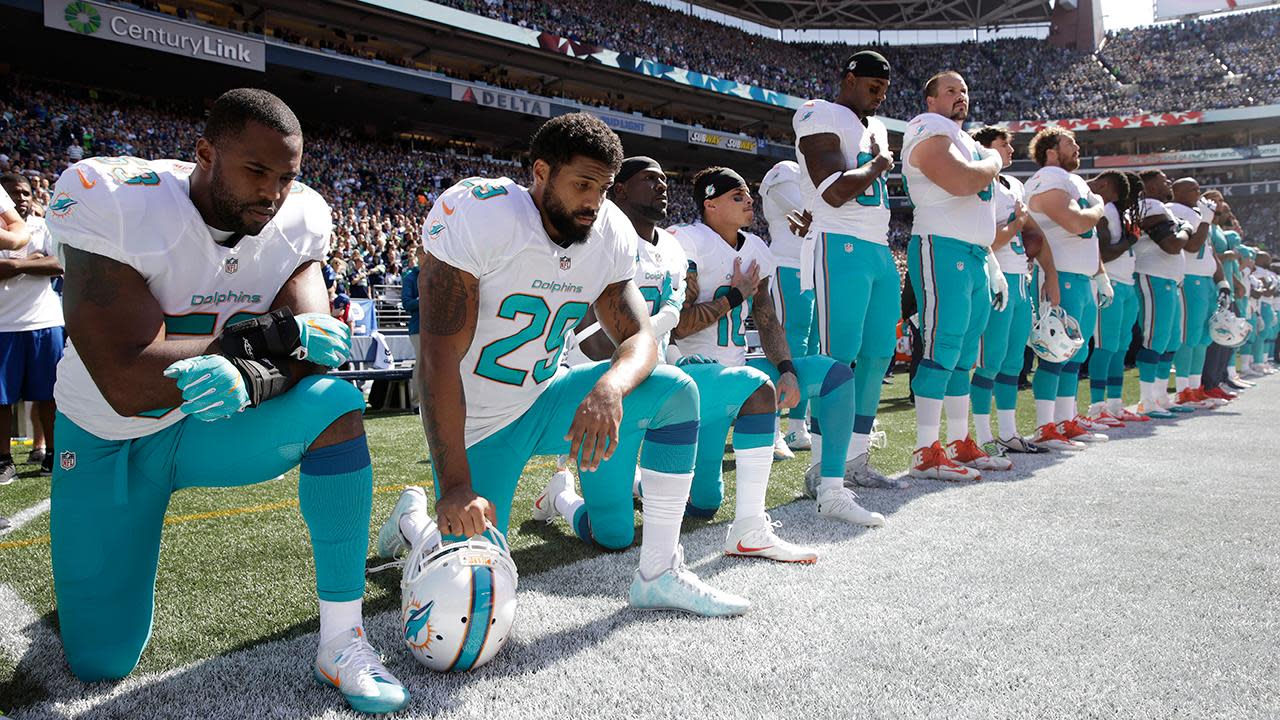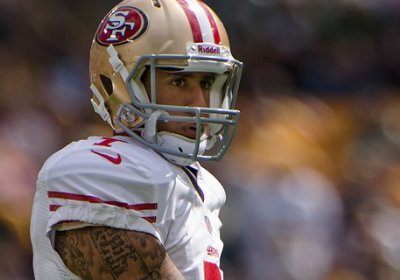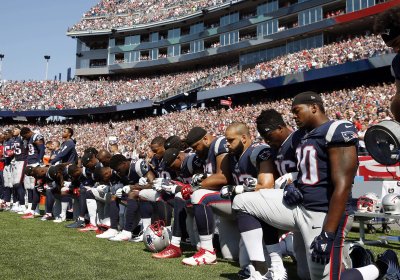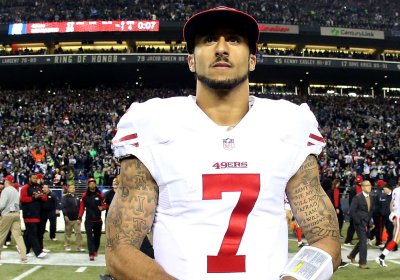Kaepernick & America portrays a person of courage and commitment while revealing the racist sickness at the heart of US culture, writes Barry Healy.
Colin Kaepernick
At the first preseason NFL games on August 9, players continued to protest racial inequity and police violence by kneeling or raising a fist during the US national anthem, writes Dave Zirin.
One year ago, Colin Kaepernick, then-quarterback for the San Francisco 49ers National Football League team, refused to stand for the US national anthem, famously kneeling instead. He was alone in his protest.
Over the weekend of September 23-24, tens of millions of football fans watched on TV as 200 mostly Black players knelt or raised their fists while the national anthem was sung. The rest of their teams stood in solidarity with their right to protest, arm-in-arm. In some cases, entire teams stayed in the locker room while the anthem played.
A rally gathered in front of the NFL’s Park Avenue Headquarters in New York on August 23. A host of civil-rights organisations protested the exile-status of free-agent quarterback Colin Kaepernick — the star quarterback formerly of the San Francisco 49ers who caused waves by taking to his knee during the US national anthem as an anti-racist protest.

On September 11 in the United States, a small group of National Football League players risked their careers, their endorsements and their livelihoods. They did so through the simple act of refusal.
Explaining why he refused to stand for the “Star Spangled Banner” before a preseason game on August 26, San Francisco 49ers quarterback Colin Kaepernick said: “I am not going to stand up to show pride in a flag for a country that oppresses black people and people of colour.




